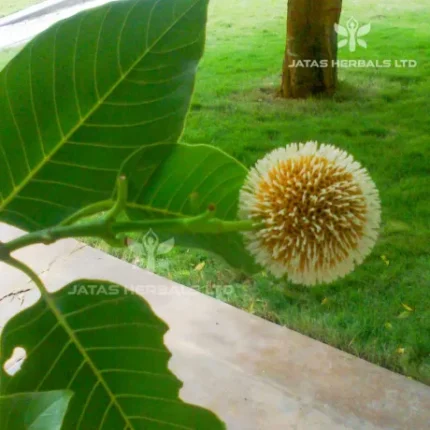In the vedic literature fruits of Amalaka were considered as the best among the fruits. Its fruits along with other herbs were mixed in water and used for bathing during marriage rituals. Amalaki is one of the most commonly used and important herbs in Ayurvedic medicine. It is described/used extensively by Brihat Trayi texts as well as Nighantu works. Caraka quoted it as the best among the Vayahsthapana drugs (rejuvinators).
Though all the Amla rasa (sour substances) are said to enhance Pitta, Amalaki is the exception being Pitta Samaka (Pitta subsiding).
Both the classical literature and scientific studies prove that Amalaki is an immonomodulator, antioxidant, tonic, anti-diabetic and hypocholesteraemic agent.
Some times there may be confusion between Amalaki and Prachinamalaki. The later is mentioned by Thakurji as Flacourtia jangomos (Lour.) Racuseh and by P.V. Sharmaji as F. catapharacta Roxb. Still the correct source is Vikankata. In this context it is important to identify that Amalaki is different from Prachinamalakam.
Until recent times it is believed that the Vit. C content of dried fruit pulp is responsible for the pharmacological properties of Amalaki. But latest studies report that the special tannins present in P. emblica fruit are responsible for the effectiveness but not Vit. C. In fact Vit. C will be present in the fresh fruit but not in the dried ones.
Different varieties–There are different cultivated varieties of E. officinalis available. Four improved varieties viz., ‘Krishna’ (NA5), ‘Amrit’ (NA6), Neelam (NA7) and Kanchan are developed by Narendradev University of Agri. & Tech., Gaizabad U.P.
Botanical Description– It is a large deciduous tree with greenish-grey or red bark, peeling off in scales. Leaves–pinnate, distichously close-set, linear-oblong, obtuse. Flowers-densely fascicled along the branchlets, yellowish; males on slender pedicles, females sub-sessile, Fruits– berry, depressed globose, succulent, yellow or pink when ripe, obscurely 6-lobed. Seeds– trigonous. (flowers in Frb.-May and fruits in Oct.-April). Distribution– wild/cultivated throughout tropical India.
Major chemical constituents–
Root- ellagic acid, lupeol, oleanolic aldehyde
Bark- leucodelphinidin, procyanidin, tannin etc.
Fruit- Vit. C, phyllemblin, linolic acid, indole a cetic acid and ayxubsm trigaloylglucose, terchebin, corilagin, ellagic acid, phyllemblic acid & salts.
Part Used– Fruit pulp/Fruit rind
Dosage– Fresh juice 10-20 ml; Powder 3-6 g.
Research works–
- Antidiabetic property & hypoglycaemic activity: Emblica fruit powder reduced blood sugar levels in normal rabbits, as well as in hyperglycaemic rabbits proving the hypoglycaemic activity (Tripathi et al., 1979).
A clinical study on Nisamalaki curna (15 patiens) in diabetes proves the efficacy of the combination (Gopalakumar et al;1995 & Nagrjuna. Jan. 1983 p. 105-107).
(2) Anti-peptic ulcer activity– 30 cases of ulcer and non-ulcer dyspepsia showed equal improvement in subjective and objective parameters with conventional antacids and emblica fruits (Chawla et al., 1982 and 1987).
Dried seed powder (10 g in two divided doses for 4 weeks) significantly reduced the symptoms of Amlapitta (Sharma, 1990; Tripathi et al., 1992; Mathew et al., 1995)
(3) Hypo-lipidemic and anti-atherosclerotic activity–Five groups of rabbits were studied for 16 weeks to determine the effect of emblica fruit and vit. C (6 mg/kg) on cholesterol-induced hypercholesterolaemia and atherosclerosis. Both reduced the serum cholesterol (Thakur & Mandal, 1984).
Amla juice and pulp (35 mg/kg/day) have prevented the development of experimental atheroma both in aorta and coronary artery (Bordia et al., 1985).
Amla (fed to rabbits) showed hypolipidemic and anti-atherosclerotic activity (Mand et al., 1991).
(4) Anti-microbial activity– Emblica fruit found to have very potent anti-bacterial activity (Vinayagamorthy, 1982).
Isolation of anti-microbial substance phyllemblin from the stem-gall callus is reported (Jain et al., 1984).
(5) Anti-emetic activity– The crude alcoholic extract of emblica fruits (dry) administered orally was found effective in controlling centrally-induced emesis by apomorphine in dogs. (Yaqueenuddin et al., 1990).
(6) Anti-inflammatory activity– The water fraction of the methanol extract of leaves was effective in rat paw inflammation (Summanen et al., 1993)
(7) Antoxidant activity– The long-lived belief that the therapeutic effects of Amla is due to its rich vit c (L-ascorbic acid) content has thus been dispelled. The petent vit. C-like activity (antioxidative effect against reactive O2 species, Ros) of Amla fruits has now been located in the Low Mr (Mol. Wt. less than 1000) hydrolysable tannins. Four such compounds, emblicanin-A (1), emblicanin- B(2), puniglucomin and penduculagin, have been isolated from the fruit pericarp (Ghosal et al., 1996).
(8) Hepatoprotective activity– Dry powdered pulp of fruits (1.0g/kg) reduced the levels of serum, aortic and hepatic cholesterol significantly in rabbits (Thakur, 1995).
(9) Rasayana activity– Amalaki Rasayana is said to have growth promoting effect (growth & longevity). The drug has no significant effect on the levels of serum protein fractions, yet it raises the total protein level and increases the body weight. The study also indicates that the increase in body weight is due to a positive nitrogen balance (Tewari et al., 1968).
(10) CNS activity– Phyllembilin (ethyl gallate), has been found to potentiate some of the pharmacological actions of adrenalin in vitro and in vivo. Besides it shows a mild depressant action on CNS and has spasmolytic activity Ca. & Siddique; Ind. J. Exp. Bol. Vol. 2 Jan, 1964, p. 29-31).
Phyllemblin can protect against the spasmogenic effect of acetylcholine, bradykinin and serotonin on the guinea-pig ileum (Khurana et al., 1970).





Reviews
There are no reviews yet.